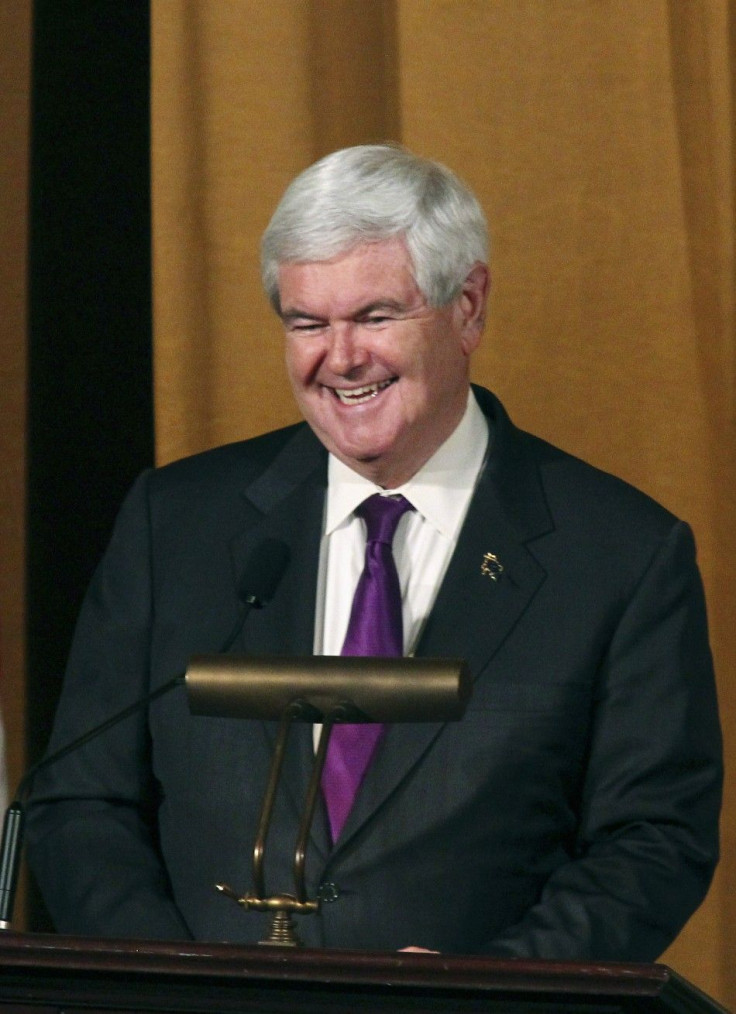Newt Gingrich To End Campaign Today, Back Romney

Nearly five months after his unexpected surge into contention for the Republican presidential nomination, Newt Gingrich is set to suspend his campaign and endorse Mitt Romney.
After an unpredictable and often acrimonious battle, the former Speaker of the House is conceding to the reality that he will be unable to surpass Romney's commanding lead in delegates. While Gingrich will not formally endorse Romney, he will become the latest prominent Republican to urge the party to rally behind Romney as the best chance to unseat President Obama.
Gingrich will tie Romney to how we need to help defeat Barack Obama and the need to help (House Speaker John) Boehner, campaign spokesman RC Hammond told CNN.
The fact that Gingrich has persisted until now both points to a remarkable turnaround in his fortunes and underscores the way super PAC money is reconfiguring American politics. Gingrich's campaign appeared to be on the brink of collapse last June as staff departed en masse, reportedly voicing complaints about a lack of discipline and organization.
But Gingrich defied predictions of his demise, remaining in the race long enough to see a line of challengers to Romney's front-runner status -- from Michele Bachmann to Herman Cain to Rick Perry -- swiftly rise and fall. His poll numbers began to rise in December, and the campaign reached a high point with a decisive victory in the South Carolina primary.
It was around that time that Gingrich began benefiting from the largesse of Sheldon Adelson, a billionaire casino magnate and ardent Israel supporter who shared a history with the former Speaker. Changes to campaign finance rules triggered by the Supreme Court's 2010 Citizens United decision allowed entities called super PACs to raise unlimited amounts of money.
Although super PACs are prohibited from coordinating with campaigns, that is little more than an easily evaded formality. Adelson and his wife poured some $26.5 million into the pro-Gingrich Winning Our Future super PAC, helping to fund a Gringrich counteroffensive after Romney bombarded Gingrich's resurgent campaign with negative advertisements.
Once one of the most powerful and influential men in Washington, Gingrich sought to reinvent himself as an outsider running against Romney, the establishment's anointed candidate. He attacked Romney's time as a private equity manager at Bain Capital -- Winning Our Future released a documentary, When Mitt Romney Came to Town, accusing Romney of hollowing out companies and destroying jobs for profit -- and Gingrich labeled Romney a liar who was insufficiently conservative.
The scorched-earth approach did little to help Gingrich in the polls, and his attacks on Romney angered some party elders and pundits who said Gingrich was parroting Democratic talking points. The assault also drew attention to Gingrich's own spotty record, including his former support for a universal health care mandate and his time working as a consultant for Fannie Mae and Freddie Mac, institutions that the Republican party holds responsible for the financial crisis.
Gingrich refocused his campaign on the South, believing he could find a route to victory through more conservative states. But he was unable to break through in Florida, and from then on won only his home state of Georgia while Rick Santorum rolled to victory in Southern states like Tennessee, Oklahoma and Alabama. Gingrich brushed off calls to leave the race even as his campaign fell millions of dollars into debt, paring down his staff and vowing to soldier on until the Republican national convention, but on Wednesday he will finally step aside.
Mitt Romney met the first criteria of being a good candidate: He won, Gingrich told USA Today. Now you have to respect that.
The lukewarm statement highlights the fact that there is no love lost between Gingrich and Romney. Romney may have trouble dealing with the fallout from Gingrich's campaign: the Obama campaign has already released an advertisement with clips of Gingrich slamming Romney and denouncing him as someone who can't be honest with the American people.
The Romney machine can drive down turnout. It can run over opponents with negative ads, Gingrich says in one clip. It doesn't seem capable of inspiring positive turnout and the result, I think, is very, very worrisome if you're thinking about the fall campaign.
© Copyright IBTimes 2025. All rights reserved.



















